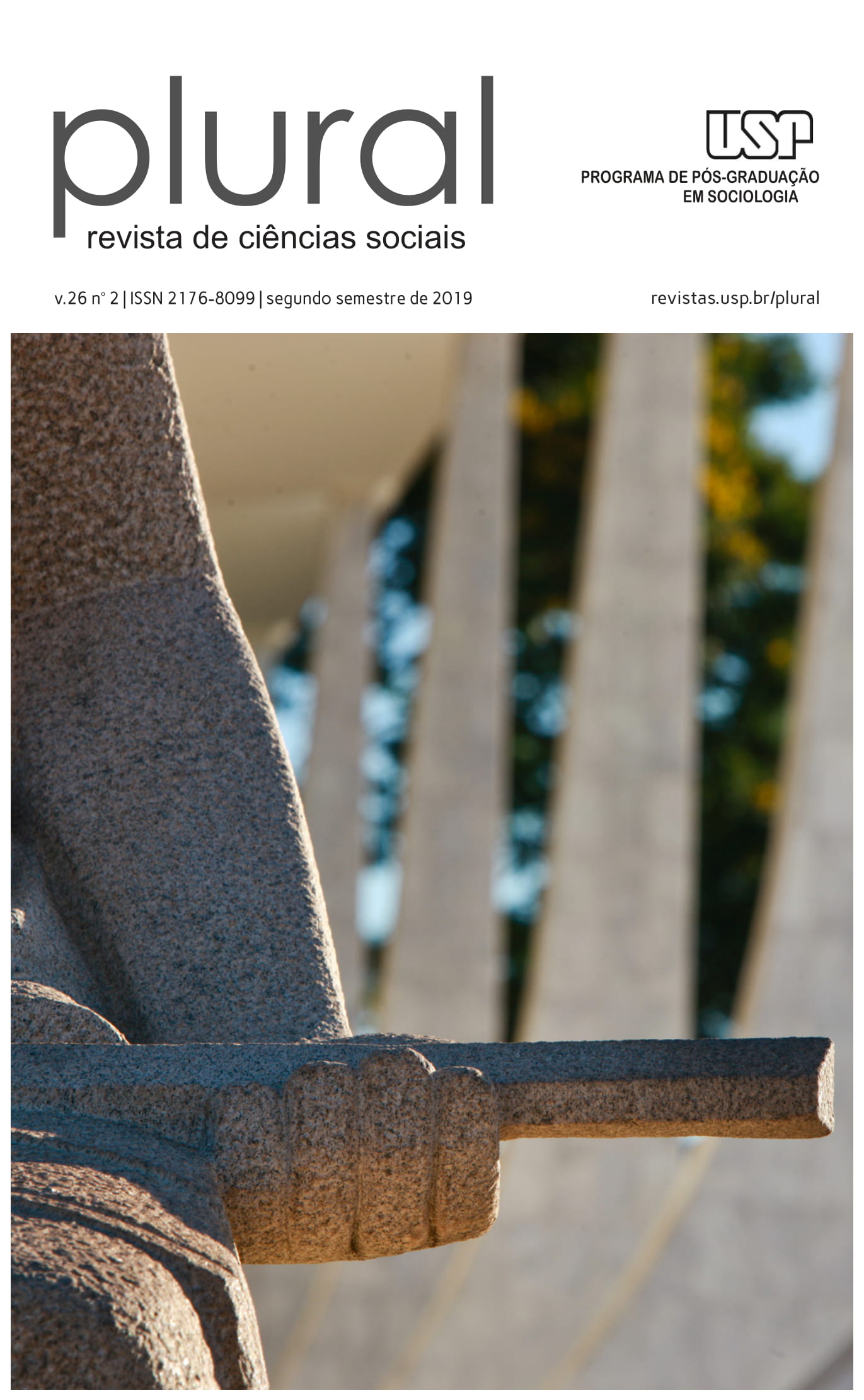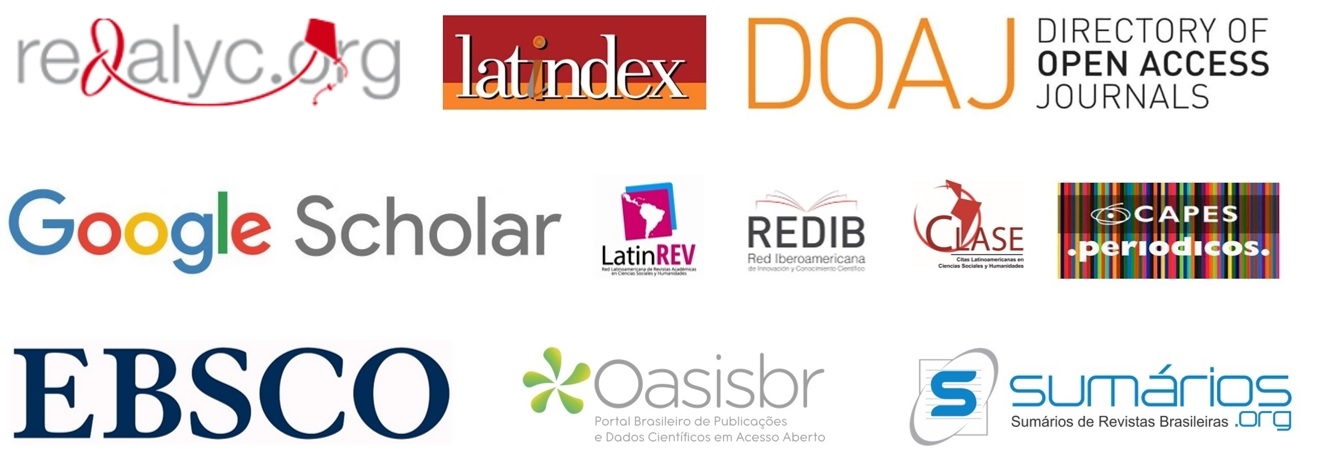Does contact with citizens matter?
An exploratory analysis about self-legitimacy development among São Paulo judges
DOI:
https://doi.org/10.11606/issn.2176-8099.pcso.2019.165683Keywords:
Self-legitimacy, Legitimacy, Judiciary, Procedural justice, ContactAbstract
This article presents partial results of a research developed by the Center for the Study of Violence of the University of São Paulo on the legitimacy of institutions in Brazil, among which is the judiciary. We make use of the concept of procedural justice, according to which legitimacy is the result of an interrelation between citizens and public servants; and from the notion of self-legitimacy, which allows one to consider the belief public agents have in the right to exercise authority. In this article, we explore the construction of self-legitimacy by judges from different branches of law in interviews conducted in the city of São Paulo. Preliminary analyses indicate two competing views on judicial authority in the opinions judges express on the importance of contact with the population: the first – more common between judges working with civil law – stands that law is a technical activity mediated by its specialized agents and which dispenses interaction with the public. The second – expressed by part of the criminal law judges – stands that contact with people involved and their particular situations is important for better and fairer decisions.
Downloads
References
Azevedo, Rodrigo Ghiringhelli de. Juizados Especiais Criminais: Uma abordagem sociológica sobre a informalização da justiça penal no Brasil. RBCS, v. 16, n. 47, p. 97-182, outubro 2001.
Beetham, David. The legitimation of power. Londres: Macmillan, 1991.
Benesh, Sara C. Understanding Public Confidence in American Courts. Journal of Politics, v. 68, n. 3, p. 697-707, agosto 2006.
Bonelli, Maria da Gloria. Ideologias do profissionalismo em disputa na magistratura paulista. Sociologias [online], n. 13, p.110-135, 2005.
Bonelli, Maria da Gloria. Os desembargadores do Tribunal de Justiça do Estado de São Paulo e a construção do profissionalismo, 1873-1997. Dados [online], v. 44, n. 2, 2001.
Bottoms, Anthony; Tankebe, Justice. Criminology: Beyond Procedural Justice: a Dialogic Approach To Legitimacy in Criminal Justice. Journal of Criminal Law & Criminology, v. 102, n. 1, p. 119-170, 2012.
Bourdieu, Pierre. “A força do direito: elementos para uma sociologia do campo jurídico”. In: Bourdieu, Pierre. O poder simbólico. Lisboa: Difel, 1989 p. 209-254.
Bradford, Ben; Quinton, Paul. Self-legitimacy, Police Culture and Support for Democratic Policing in an English Constabulary. British Journal of Criminology, v. 54, n. 6, p. 1023-1046, 2014.
Coicaud, Jean-Marc. Legitimacy and politics: a contribution to the study of political right and political responsibility. Cambridge: Cambridge University Press, 2004.
Fagan, Jeffrey. Criminal justice, law and legitimacy. Ohio State Journal of Criminal Law, v. 6, p.123-140, 2007.
Jackson, Jonathan, etal. Why do people comply with the law? Legitimacy and the influence of legal institutions. British Journal of Criminology, v. 52, n. 6, p. 1051-1071, 2012.
Jackson, J., etal. Monopolizing force? Police legitimacy and public attitudes toward the acceptability of violence. Psychology, Public Policy and Law, v. 19, n. 4, p. 479-497, 2013.
Jonathan-Zamir, Tal.; Harpaz, Amikam. Police Understanding of the Foundations of Their Legitimacy in the Eyes of the Public: The Case of Commanding Officers in the Israel National Police. British Journal of Criminology, v. 54, n. 3, p. 469–489, 2014.
Nev. CEPID FAPESP PROGRAM “BUILDING DEMOCRACY DAILY: HUMAN RIGHTS, violence and institutional trust”. 3rd Report. São Paulo, 2016.
Oliveira, Fabiana Luci de; Cunha, Luciana Gross. A legitimidade das leis e das instituições de justiça na visão dos brasileiros. Contemporânea, v. 7, n. 2, p. 275-296, jul-dez, 2017.
Peršak, Nina. Procedural Justice Elements of Judicial Legitimacy and their Contemporary Challenges. Oñati Socio-legal Series [online], v. 6, n. 3, p.749-770, 2016.
Rottman, David B.; Tyler, Tom R. Thinking about Judges and Judicial Performance: Perspective of the Public and Court Users. Oñati Socio-legal Series [online], v. 4, n. 5, p. 1046-1070, 2014.
Sadek, Maria Tereza. (Org.). Reforma do judiciário [online]. Rio de Janeiro: Centro Edelstein de Pesquisas Sociais, 2010. Disponível em: <https://static.scielo.org/scielobooks/6kf82/pdf/sadek-9788579820335.pdf> Acesso em: 16/10/2019.
Sinhoretto, Jacqueline. A justiça perto do povo: reforma e gestão de conflitos. São Paulo, Editora Alameda, 2011.
Sinhoretto, Jacqueline. Reformar a justiça pelas margens. Revista Brasileira de Sociologia, v. 5, n. 10, p. 30-57, Mai/Ago, 2017.
Sunshine, Justice; Tyler, T. R. The role of procedural justice and legitimacy in shaping public support for policing. Law & Society Review, v. 37, n. 3, p. 513-548, 2003.
Tankebe, Justice. Identifying the Correlates of Police Organizational Commitment in Ghana. Police Quarterly, v. 13, n. 1, p. 73–91, 2010.
Tankebe, Justice. Viewing things differently: the dimensions of the public perceptions of police legitimacy. Criminology: An Interdisciplinary Journal, v. 51, n. 1, p. 103-135, 2013.
Tankebe, Justice. Rightful Authority: Exploring the Structure of Police Self- Legitimacy. SSRN Electronic Journal, p. 1-30, 2014. Disponível em: <https://ssrn.com/abstract=2499717> ou <http://dx.doi.org/10.2139/ssrn.2499717> Acesso em 16 de outubro de 2019.
Tyler, Tom R. Why people obey the law: Procedural justice, legitimacy, and compliance. New Haven: Yale University, 1990.
Tyler, Tom R. Procedural Justice, Legitimacy, and the Effective Rule of Law. The University of Chicago Press: Crime and Justice, v. 30, p. 283-357, 2003.
Tyler, Tom R. Restorative justice and procedural justice: dealing with rule breaking. Journal of Social Issues, v. 62, n. 2, p. 307-326, 2006.
Tyler, Tom R. Procedural Justice and the Courts. Court Review: The Journal of the American Judges Association, v. 44, n. 1/2, p. 26-31, 2007.
Tyler, Tom R; Huo, Yuen. Trust in the Law. Encouraging Public Cooperation with the Police and Courts. Nova York: Roussel Sage Foundation, 2002.
Vianna, Luiz Werneck. “A judicialização da política”. In: Avritzer, Leonardo etal. (Orgs.). Dimensões políticas da justiça. Rio de Janeiro: Civilização Brasileira, 2013, p.207-214.
Vianna, Luiz Werneck; Burgos, Marcelo Baumann. Entre princípios e regras: cinco estudos de caso de ação civil pública. Dados, v. 48, n. 4, Iuperj, p. 777-843, 2005.
Vianna, Luiz Werneck; Carvalho, Maria Alice Rezende de; Melo, Manuel Palacios Cunha; Burgos, Marcelo Baumann. A judicialização da política e das relações sociais no Brasil. Rio de Janeiro: Revan, 1999.
Vianna, Luiz Werneck et al. Corpo e alma da magistratura brasileira. Rio de Janeiro: Revan, 1997.
Vianna, Luiz Werneck et al. A judicialização da política e das relações sociais no Brasil. Rio de Janeiro: Revan, 1999.
Weber, Max. Economia e Sociedade: fundamentos da sociologia compreensiva, Vol. 2. São Paulo: Editora UnB, 2004.
Weber, Max. Ciência e Política: duas vocações. São Paulo: Cultrix, 1970.
Published
Issue
Section
License

This work is licensed under a Creative Commons Attribution-NonCommercial-ShareAlike 4.0 International License.
Ao submeter seu trabalho à Plural, o autor concorda que: o envio de originais à revista implica autorização para publicação e divulgação, ficando acordado que não serão pagos direitos autorais de nenhuma espécie. Uma vez publicados os textos, a Plural se reserva todos os direitos autorais, inclusive os de tradução, permitindo sua posterior reprodução como transcrição e com devida citação de fonte. O conteúdo do periódico será disponibilizado com licença livre, Creative Commons - Atribuição NãoComercial- CompartilhaIgual –, o que quer dizer que os artigos podem ser adaptados, copiados e distribuídos, desde que o autor seja citado, que não se faça uso comercial da obra em questão e que sejam distribuídos sob a mesma licença (ver: http://www.creativecommons.org.br/).







